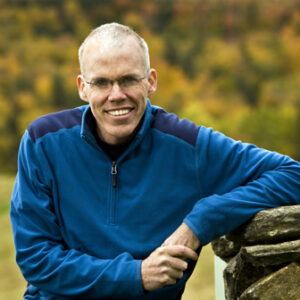This article originally appeared in the March 2010 Harker Quarterly.
Along with studying for history tests, meeting friends at the mall and signing up for drivers’ education classes, a trio of upper school girls have added “become agents of change” and “fight global warming” to their to-do lists.
Harker junior Olivia Zhu and sophomores Daniela Lapidous and Shreya Indukuri have already spun their interest in the environment into landing significant national awards, but continue their fights for environmental awareness and change.
In December 2009, Zhu became one of only four teens to represent the U.S. at the first Children’s Climate Forum (CCF), a precursor to the COP15, the 2009 United Nations Climate Change Conference in Copenhagen, Denmark.
While there, Zhu and an international gathering of teens wrote a lengthy declaration on climate change for presentation to world leaders. About her experience at CCF, Zhu said, “I was definitely surprised at how much the delegates from other countries were looking toward the U.S. with regard to climate change policies. While I knew that they were concerned about the state of American emissions, it was interesting to see how almost every single question they asked the moderators was about the U.S. and how many of the other delegates had really done their homework on the issue.”
Now, Zhu is channeling her efforts through San Jose District One’s Youth Advisory Council (YAC), which serves as a sounding board for city councilman Pete Constant. The YAC is the same vehicle Lapidous and Indukuri, who won a grant to install smart meters and improve energy use at Harker last fall, are using to encourage the duplication of their efforts in the Silicon Valley.
Working together, the sophomores launched www.SmartPowerEd.org, a Web site built to help teens launch energy-saving programs at their schools. The site features a survey which teens fill out on behalf of their schools.
Once the survey is completed, Lapidous and Indukuri get to work analyzing the data, which they return to students interested in making presentations to their school administrators. Lapidous and Indukuri can even direct interested schools to funding resources.
“The great thing about the program is that it requires students’ involvement and interest in energy reduction which ultimately lowers the school’s carbon footprint,” explains Indukuri. “Most schools are very enthusiastic about having a smart energy solution because the energy they conserve means saving money for the school – money that can be used for other projects.”
Zhu has been an avid supporter of her schoolmates’ work. She’s already penned two articles for “Voice 1,” a publication of YAC – one about her CCF experience and the other promoting Indukuri and Lapidous’ undertaking. Zhu reported that news of the girls’ work got rave reviews in Copenhagen.
“Daniela and Shreya’s project really impressed the delegates from around the world as an example of small scale but effective change, and their current work with the YAC is an amazing example of how powerful local action can be,” said Zhu. “The CCF’s main goal was to instigate this type of community change, and it’s great that Harker and now San Jose can be a part of that because of their work.” So far, the results are encouraging.
“One of our goals is to get smart energy moving in at least 25 schools in California by the end of this summer,” explained Lapidous, who reports that they’ve already received completed surveys from three schools: Notre Dame, Bellarmine and Westmont high schools.
“Students like Olivia, Shreya and Daniela are inspiring,” said Butch Keller, upper school head, who has been following the girls’ efforts since last summer. “Everyone at Harker is so proud of what they’ve already done to combat the effects of climate change at every level. There’s no telling what these girls will accomplish in the future!”
Maybe the girls will put off learning to drive until they’ve polished off this global warming thing.







